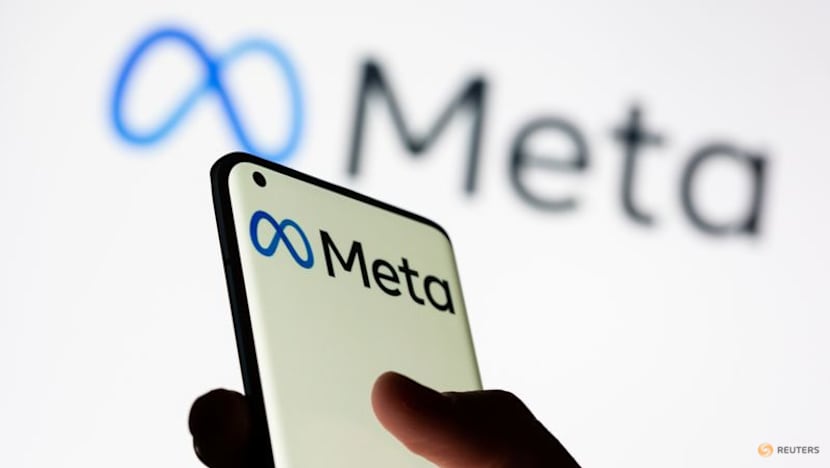Singapore sets Sep 30 deadline for Meta to take measures to curb Facebook impersonation scams
This is the first such directive under the Online Criminal Harms Act, under which Meta faces a fine of up to S$1 million for failing to comply.

The logo of Facebook parent company Meta. (File photo: Reuters/Dado Ruvic)

This audio is generated by an AI tool.
SINGAPORE: The Singapore government has ordered Meta to put in place measures such as facial recognition to curb Facebook impersonation scams in the first such directive under the Online Criminal Harms Act (OCHA).
Meta, the parent company of Facebook, has until Sep 30 to comply.
Apart from implementing enhanced facial recognition measures, it is also required to prioritise review of end-user reports from Singapore to reduce scam advertisements, accounts, profiles, and/or business pages impersonating key government office holders in Singapore.
Meta faces a fine of up to S$1 million (US$776,400) upon conviction if it fails to comply, the Ministry of Home Affairs (MHA) said in a press release on Thursday (Sep 25).
If the offence continues, Meta could face a further fine of up to S$100,000 for every day or part of a day during which the offence continues after conviction.
The intention to issue the directive was first announced on Sep 3 at the Global Anti-Scam Summit Asia 2025, and it comes amid a surge in government official impersonation scams.
Between June 2024 and June 2025, MHA and the Singapore Police Force (SPF) saw an increase in scammers exploiting Facebook to perpetrate impersonation scams using videos or images of key government office holders in fake advertisements, accounts, profiles and business pages.
During this period, SPF disrupted about 2,000 such advertisements and online monikers on Facebook.
“Facebook is the top platform used by scammers to commit such impersonation scams. Stemming the proliferation of such impersonation scams is critical to protect the public from harm and uphold trust in our government and public institutions,” MHA said on Thursday.
“While Meta has taken steps to address the risk of impersonation scams globally, including in Singapore, MHA and SPF remain concerned by the prevalence of such scams in Singapore. SPF has therefore issued this implementation directive to Meta, to underscore the seriousness that the government attaches to the matter.”
MHA said authorities are also considering imposing similar requirements on other online platforms and that more details would be announced "in due course".
"MHA and SPF will also work with Meta to leverage its global impersonation protection measures to support other influential public figures in Singapore who may be at risk of being impersonated by scammers."
In response to CNA queries, Meta said it was against its policies to impersonate or run advertisements that deceptively use public figures to try to scam people, adding that the company removes these when detected.
"Scammers use every platform available to them and constantly adapt to evade enforcement," its spokesperson said.
"That’s why Meta has specialised systems to detect impersonating accounts and celeb-bait ads, including facial recognition technology, invests heavily in improving our detection and trained review teams, shares tips on avoiding scams and offers tools to report potential violations."
Meta added that it has also rolled out advertiser verification and will continue working with law enforcement and take legal action against the criminals behind these scams.
















